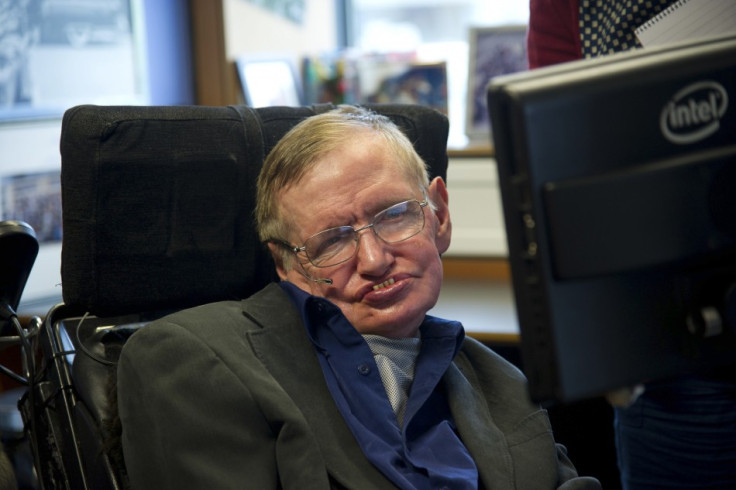Cosmic Inflation Inflates Hawking's Ego in 'Bragging Rights' Bet

The discovery of primordial gravitational waves announced by the Harvard-Smithsonian Centre for Astrophysics has meant Stephen Hawking has won a bet with a former colleague.
Appearing on BBC4's Today programme, Hawking told how the discovery of evidence supporting cosmic inflation means he has won a bet he made against Professor Neil Turok, director of the Perimeter Institute in Canada.
The pair made the bet early in the 2000s when Turok was the chair of mathematical physics at Cambridge University. Much of Hawking's work has been involved in developing the theory of inflation, which says the universe went from very small to infinitely large in a fraction of a second following the Big Bang, and that it is still expanding.
Turok had made a talk in which he dismissed the theory of inflation and said the Big Bang was "just the latest in a series of Big Bangs". Disagreeing, Hawking made the wager.
He said: "A team from Harvard announced they had detected gravitational waves from the very early universe. It is another confirmation of inflation.
"It also means I win a bet with Neil Turok, director of the Perimeter Institute in Canada. The cyclic universe theory predicts no gravitational waves from the early universe."
While Hawking did not say what he won in the bet, it is believed the pair agreed to "bragging rights".
The physicist has previously been known to wager money in the past. In 2012, he lost $100 to Gordon Kane, from the University of Michigan, following the Higgs Boson discovery.
However, Turok said he is not quite ready to cough up whatever was agreed on. Commenting on the announcement of the discovery of gravitational waves, he said: "I have reasons for doubt about the new experiment and its results. It's not entirely convincing to me that they have clearly seen what they have claimed to have seen.
"Verification is very important, and it's wise to be a little bit sceptical at the moment when there is no confirmation, and the experiment was extremely difficult, and they don't entirely explain why they are so convinced of what they claim."
He conceded, however, that the discovery was "tremendously exciting".
© Copyright IBTimes 2025. All rights reserved.






















